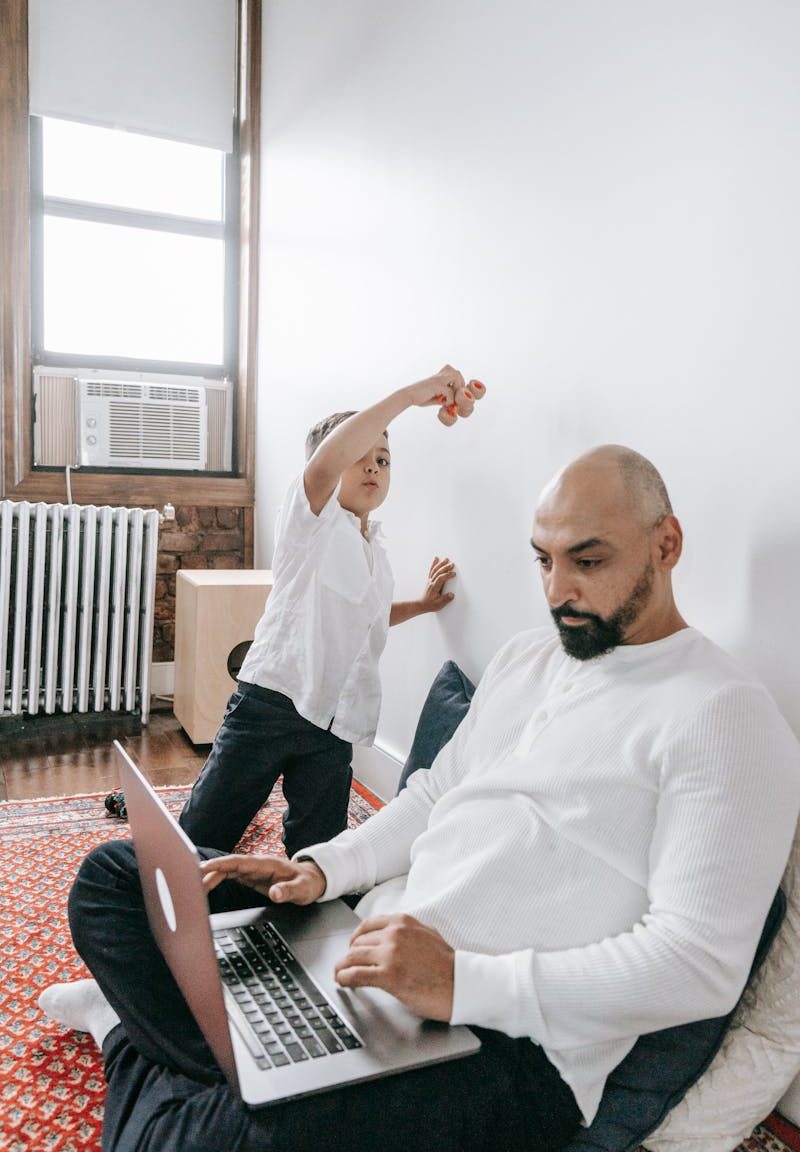
Work and Childcare
It is likely that when you start work you will need some form of childcare. What type will depends on the age and the needs of your children.
Whether or not you are comfortable with putting your children in childcare is a personal decision. However, although some parents are apprehensive about using childcare, research by Bristol University* found that the use of childcare made no difference to the development of young children and had no adverse effects. Some people believe that good quality childcare is of benefit to children’s development.
“If I found a situation, which I had before, where there was a crêche near work, so that they would not be far away from me and if there were any problems I would be there, then I might consider that. But of course you have to judge the quality of the crêche. If I could find that situation again it would be good because you have to develop yourself and the kids would be getting social interaction on a bigger scale than I could provide.”
Some people may worry about using childcare but experts such as the Daycare Trust emphasise that it is the quality of the childcare used that is the crucial factor. If you visit their website you can find what to look out for. If you have pre-school children, finding good quality childcare will be a prerequisite of starting work. For pre-school children there are many different types of childcare. Before you start looking for work it might be a good idea to find out exactly what provision there is in your area, how much it costs and if there are waiting lists.
“I think I was very lucky because the Montessori was one of the few nurseries that had places and I was absolutely panicking because you’re offered these jobs and you’ve got about a week to get it together, so I was really lucky, you forget how difficult it is”.
For school age children, childcare is still an issue. It may be difficult to find a job which fits in exactly with school hours and it may limit the jobs you can apply for if you do not have out of school care. Many schools have after-school clubs and holiday play schemes attached to them, and some even have breakfast clubs. If your child/ren are still young it is unlikely that you will want them to go to all of these schemes but they may be useful sometimes. If you will be choosing a school remember to find out what out-of-hours care they have.
Once children are in secondary school you will still need to make decisions about how they are looked after. There is no law indicating the age a child can be left at home alone. In fact it is not against the law to leave children on their own in the home, but a parent can be charged with ‘wilful neglect’ if it is seen that they have put a child at risk of being harmed or injured. As the parent you remain responsible for the child until they are 16. At what age you decide that your child is responsible enough to be left alone in the home is up to you. To give you peace of mind it may be easier if you know they are going to structured after-school activities.
Costs can add up – especially for young children or if you have more than one child. You may prefer to use ‘informal’ childcare i.e. friends and relatives. Many single parents get a lot of support from the extended family, but remember that you can’t get help towards the cost of informal childcare. However, if a grandparent is looking after your children while you work they may be able to get registration as a childminder so that you can get financial help.
Two good organisations to contact are The Daycare Trust and Childcare Link. Childcare Link can tell you how to contact your local Children’s Information Service is. They have local information about childcare available in your area.
* Part of ALSPAC (Children of the 90s) study, University of Bristol, May 2003
Useful Links:
Family and Childcare Trust4Children
Professional Association for Childcare and Early Years
Pre-School Learning Alliance
Childcare Link

